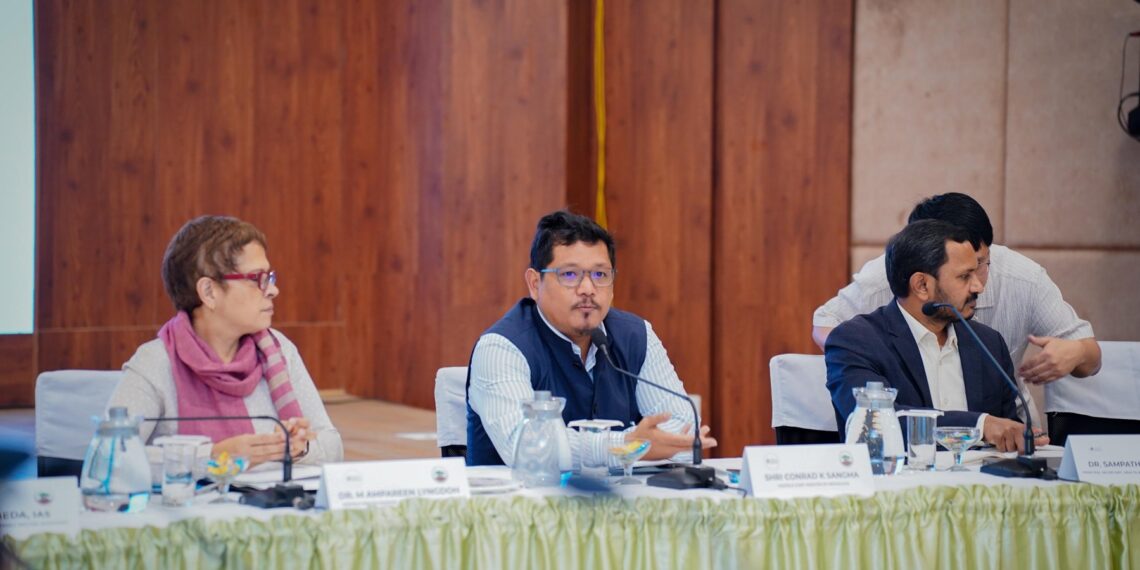Shillong: Meghalaya Chief Minister Conrad K. Sangma has expressed his government’s vision to transform the state’s health sector into a model that serves not only the people of Meghalaya but also the wider region and neighbouring countries.
Speaking at the state’s inaugural Health Summit in Shillong, Sangma emphasised the government’s commitment to comprehensive reforms aimed at enhancing healthcare delivery.
“Our goal is to ensure that no one needs to leave the state for medical attention,” Sangma said, adding that the state aims to establish itself as a sought-after destination for quality healthcare.
He acknowledged the historical neglect of the sector and outlined the government’s strategy to address these challenges through targeted investments and collaboration with stakeholders.
The chief minister highlighted the state’s allocation of over 8% of its budget to healthcare—the highest among Indian states—as a reflection of its priorities.
“This is not just about numbers but about real outcomes,” Sangma stated, noting that the government has made significant progress in infrastructure development, workforce recruitment, and the adoption of digital solutions to streamline operations.
Sangma detailed the government’s efforts to overcome a backlog of over 500 vacant doctor positions through the creation of the Meghalaya Medical Services Recruitment Board, which filled these posts within three months.
He also mentioned investments in repairing and upgrading health facilities, from Primary Health Centres (PHCs) to Civil Hospitals.
The summit also marked the distribution of appointment letters to 164 staff nurses, 78 Auxiliary Nurse Midwives (ANMs), and 181 AYUSH professionals under the National AYUSH Mission.
Digital initiatives were a central theme of the chief minister’s address, with Sangma highlighting the introduction of real-time drug inventory management and digitized benefit distribution systems for ASHAs, which now ensure faster processing of incentives.
Health Minister Dr. Ampareen Lyngdoh echoed the chief minister’s sentiments, describing the Health Summit as a paradigm shift in how healthcare is perceived and delivered in the state.
“Healthcare is not just a public service; it is a shared responsibility requiring collaboration between the government, civil society, and private entities,” she said.
ALSO READ: Airtel shields 1.35 million users in Northeast with AI-driven fraud detection
During the summit, participants launched Meghalaya’s Antibiotic Policy and engaged in discussions on topics such as emerging health technologies, the rising burden of non-communicable diseases, and strategies to bridge urban-rural healthcare disparities.
Stakeholders also emphasised the importance of data-driven public health planning and stronger partnerships with not-for-profit healthcare providers.
The event underscored Meghalaya’s commitment to evolving as a regional healthcare leader, with initiatives aimed at building a robust, inclusive, and technologically advanced health ecosystem.















